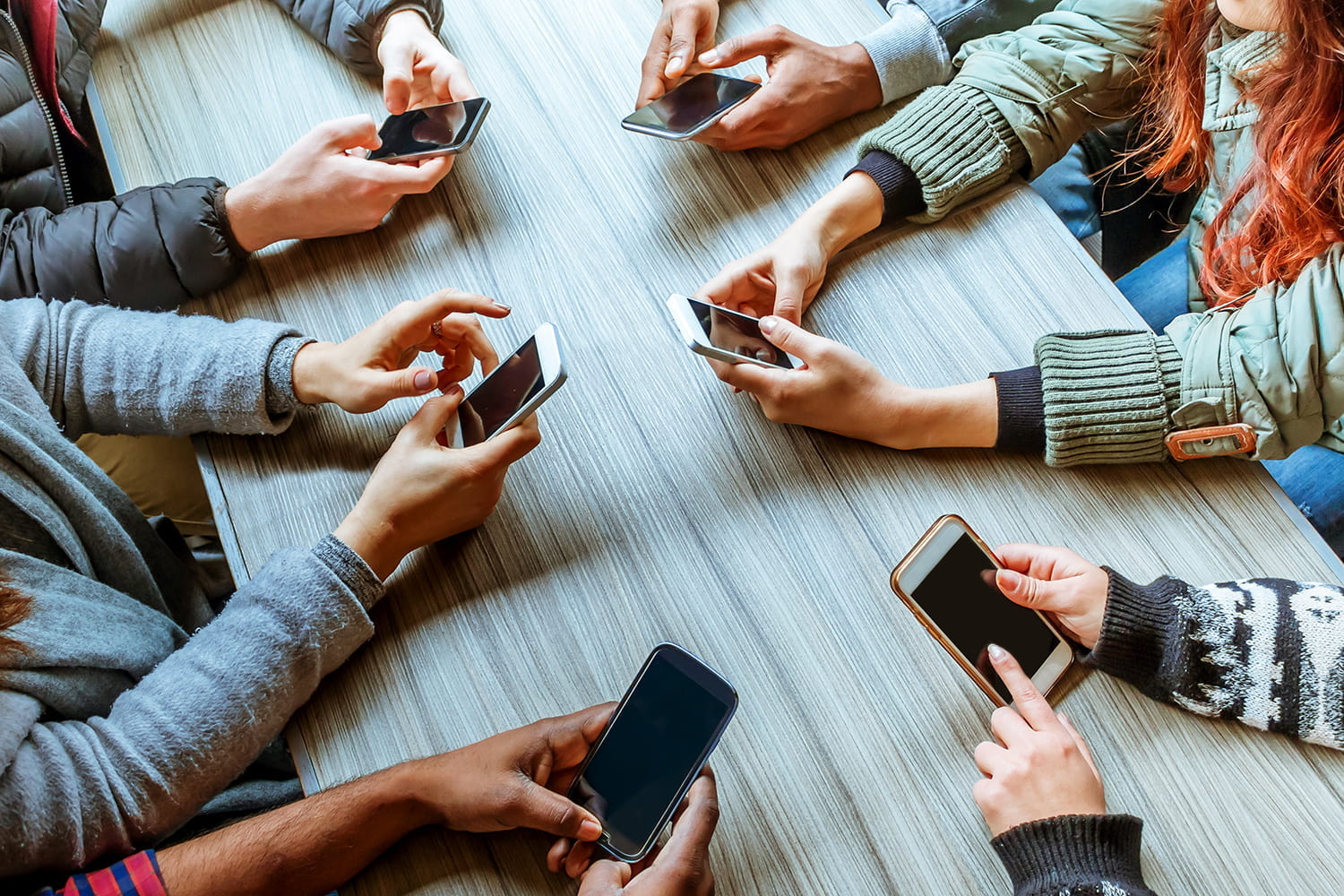Anabel Sanchez
Online Editor
If you walk into a classroom or a waiting room, the chances of you finding someone fiddling on their phone is higher than not. The pull of YouTube, Twitter, Facebook and the endless array of other social media platforms draws in everyone from 12-year-olds to seniors.
Approaching twenty years into the 21st century, humans have never been more attached to their smartphones and devices—the conduits for all social media.
According to a 2018 report from the Pew Research Center, 95 percent of American teenage students use a smartphone, while 45 percent say they are constantly online. Meanwhile, 78 percent of 18- to 24-year-olds use Snapchat, 71 percent use Instagram and 45 percent use Twitter.
However, while social media and the internet seem to connect us with the entire world, many argue that interacting via social media instead of interacting in person is ruining direct human interaction.
So, are we really making the connections we need, or are we actually disconnecting from each other?
The pros of social media and technology can’t be denied. We get instant news, a sounding board to share thoughts, and access to communities that otherwise wouldn’t be accessible to us.
However, the arguments against these pros equally can’t be denied either.
News isn’t always accurate, sharing thoughts often incites negative interactions and forming an identity in a community doesn’t fully represent who someone is as a complex person.
Some people believe the most worrying con is the possible damage we are doing to each other as a society as we continue to interact via devices.
Psychologist Sherry Turkle believes that the nuances developed between humans in communication will be lost in this new age of online social connectivity.
In an interview on NPR’s program Fresh Air, Turkle stated that physical face-to-face interaction teaches “skills of negotiation, of reading each other’s emotion, of having to face the complexity of confrontation and dealing with complex emotion.”
In an interview with the National Education Association (NEA), 11th grade teacher Cori McAbee said, “Social media has crippled my students when it comes to interacting with one another in person. Their very ability to communicate is deteriorating.”
There’s also been a startling link between smartphone usage and poor mental health.
Director of Public Policy at the Mental Health Association John Richter stated to NEA, “Researchers are finding that when someone develops depression and withdraws from peers, they see other people on social media smiling and at parties with friends. It magnifies their sense of isolation.”
With this troubling information, it’s clear that social media usage via technology has wildly rocked the boat in which human communication and our state of being figuratively sit in.
Unfortunately, the reality stands that as a society we are too far down the rabbit hole to eliminate usage of our devices. From virtually depositing checks to viewing tutorials, it’s heavily involved in our day-to-day dealings.
Unless some evil force wipes out the magic that makes electricity possible across the world, devices and social media aren’t going anywhere.
Solutions for social media addiction such as teaching children from an early age the importance of engaging outside of a social media world or taking regular social media breaks might be the best options society has.
Ultimately, only time will tell what the long-term results of our actions will be. In the meantime, we have a lot of work to do to save us from disconnecting.
sancha9@mail.broward.edu:
Photo: Social media and media devices have become an addiction in society. Courtesy of shutterstock.com
